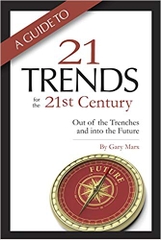-
-
-
Tổng tiền thanh toán:
-
-
Thông tin
-
Tìm sách theo yêu cầu
In 1969, Princeton physicist Gerard O'Neill began looking outward to space colonies as the new frontier for humanity's expansion. A decade later, Eric Drexler, an MIT-trained engineer, turned his attention to the molecular world as the place where society's future needs could be met using self-replicating nanoscale machines. These modern utopians predicted that their technologies could transform society as humans mastered the ability to create new worlds, undertook atomic-scale engineering, and, if truly successful, overcame their own biological limits. The Visioneers tells the story of how these scientists and the communities they fostered imagined, designed, and popularized speculative technologies such as space colonies and nanotechnologies.
Patrick McCray traces how these visioneers blended countercultural ideals with hard science, entrepreneurship, libertarianism, and unbridled optimism about the future. He shows how they built networks that communicated their ideas to writers, politicians, and corporate leaders. But the visioneers were not immune to failure--or to the lures of profit, celebrity, and hype. O'Neill and Drexler faced difficulty funding their work and overcoming colleagues' skepticism, and saw their ideas co-opted and transformed by Timothy Leary, the scriptwriters of Star Trek, and many others. Ultimately, both men struggled to overcome stigma and ostracism as they tried to unshackle their visioneering from pejorative labels like "fringe" and "pseudoscience."
The Visioneers provides a balanced look at the successes and pitfalls they encountered. The book exposes the dangers of promotion--oversimplification, misuse, and misunderstanding--that can plague exploratory science. But above all, it highlights the importance of radical new ideas that inspire us to support cutting-edge research into tomorrow's technologies.
Product Details
- Hardcover: 368 pages
- Publisher: Princeton University Press (December 9, 2012)
- Language: English
- ISBN-10: 0691139830
- ISBN-13: 978-0691139838
- Product Dimensions: 9.4 x 6.4 x 1 inches
- Shipping Weight: 1.5 pounds (View shipping rates and policies)
- Average Customer Review: 4.7 out of 5 stars See all reviews (6 customer reviews)
- Amazon Best Sellers Rank: #674,856 in Books (See Top 100 in Books)
- #73 in Books > Science & Math > Physics > Nanostructures
Editorial Reviews
Review
Winner of the 2012 Eugene E. Emme Award for Astronautical Literature, American Astronautical Society
"In his fascinating new book, McCray profiles the larger-than-life characters and ideas that changed science and technology in the second half of the 20th century and beyond. The author describes the titular visioneers as 'hybrids'--creative combinations of futurist, scientist, and charismatic promoter. At the center of this story are physicist Gerard O'Neill and biotech pioneer K. Eric Drexler. . . . McCray, a professor of history at UC Santa Barbara, discusses how O'Neill's vision of space as a tabula rasa for the human race spurred the formation of grassroots groups like the L5 Society and captured the imaginations of many young scientists and engineers like Drexler, as well as influential figures like Stewart Brand and Timothy Leary. Considered together, they 'took speculative ideas out of the hands of sci-fi writers' and had an enormous impact on generations of people, science, and political policy."--Publishers Weekly (starred review)
"McCray focuses on Gerard K. O'Neill, the Princeton physicist and designer of space colonies, and on his protégé, K. Eric Drexler, the 'speculative engineer' trained at the Massachusetts Institute of Technology in Cambridge who helped to put nanotechnology on political agendas in the early 1990s. Along the way, McCray introduces a large and colourful cast of others who, over four decades, promoted technological progress as the way to overcome every limit. . . . McCray's book is especially convincing in following the various movements that arose in reaction to the Club of Rome's 1972 book (The Limits of Growth). . . . McCray's argument that visioneers play an important part in the 'technological ecosystem' is also compelling . . ."--Cyrus Mody, Nature
"The overarching narrative of The Visioneers--that of humankind's struggle against limits real and imagined--is compelling, and no less so because of how effectively it reflects the questions of technology surrounding today's big fears like peak oil and global warming. . . . [The Visioneers] is an extremely edifying and well-researched history. Recommended for technology buffs, doomsayers, and anyone with an interest in the intersection of science, technology, and society."--ForeWord
"[A] thoughtful, meticulous history . . ."--Simon Ings, New Scientist
"I recommend McCray's The Visioneers to all readers interested recent history of science in the making and, more generally, in the place of science in society. The marketing of science is entering a new era and many of the visioneers described by McCray may be seen as the first of a wave of new kind of figures in the history of science, both technoscientists and visionary promoters."--Roger F Malina, Leonardo Journal
"McCray's narrative is often fascinating. He connects interest in space colonies with a pervasive fear in the 1970s that unchecked population growth would precipitate an apocalyptic environmental crisis on Planet Earth."--Glenn C. Altschuler, Tulsa World
"Remember the late 20th century? When machines on the moon were spitting 10-pound spoonfuls of soil into orbit every few seconds, as raw material for space colonies and zero-gravity factories? When solar panels in orbit were beaming down the planet's power supply? When we were manufacturing everything we wanted, molecule by molecule, via machines smaller than the smallest objects we previously knew? In The Visioneers, the UC-Santa Barbara historian W. Patrick McCray revisits the birth and growth of those futures--or rather, those concepts of the future, which haven't (yet) come true. . . . [W]ell-detailed . . ."--Brian Doherty, Reason
"[M]cCray focuses on the public relations efforts of [Gerard O'Neil and Eric Drexler] and how their agenda helped shape the national agenda for science and technology research and reveals how these visionaries worked tirelessly to make their dreams a reality. Recommended for readers with an interest in the history of science, especially in the space exploration or nanotechnology fields."--Library Journal
"McCray skilfully weaves a narrative between O'Neill and Drexler in what is a superb and important book."--Keith Cooper, Astronomy Now
"In his fascinating new book, McCray profiles the larger-than-life characters and ideas that changed science and technology in the second half of the 20th century and beyond. The author describes the titular visioneers as 'hybrids'--creative combinations of futurist, scientist, and charismatic promoter. At the center of this story are physicist Gerard O'Neill and biotech pioneer K. Eric Drexler. . . . McCray, a professor of history at UC Santa Barbara, discusses how O'Neill's vision of space as a tabula rasa for the human race spurred the formation of grassroots groups like the L5 Society and captured the imaginations of many young scientists and engineers like Drexler, as well as influential figures like Stewart Brand and Timothy Leary. Considered together, they 'took speculative ideas out of the hands of sci-fi writers' and had an enormous impact on generations of people, science, and political policy."--Publishers Weekly (starred review)
"McCray focuses on Gerard K. O'Neill, the Princeton physicist and designer of space colonies, and on his protégé, K. Eric Drexler, the 'speculative engineer' trained at the Massachusetts Institute of Technology in Cambridge who helped to put nanotechnology on political agendas in the early 1990s. Along the way, McCray introduces a large and colourful cast of others who, over four decades, promoted technological progress as the way to overcome every limit. . . . McCray's book is especially convincing in following the various movements that arose in reaction to the Club of Rome's 1972 book (The Limits of Growth). . . . McCray's argument that visioneers play an important part in the 'technological ecosystem' is also compelling . . ."--Cyrus Mody, Nature
"The overarching narrative of The Visioneers--that of humankind's struggle against limits real and imagined--is compelling, and no less so because of how effectively it reflects the questions of technology surrounding today's big fears like peak oil and global warming. . . . [The Visioneers] is an extremely edifying and well-researched history. Recommended for technology buffs, doomsayers, and anyone with an interest in the intersection of science, technology, and society."--ForeWord
"[A] thoughtful, meticulous history . . ."--Simon Ings, New Scientist
"I recommend McCray's The Visioneers to all readers interested recent history of science in the making and, more generally, in the place of science in society. The marketing of science is entering a new era and many of the visioneers described by McCray may be seen as the first of a wave of new kind of figures in the history of science, both technoscientists and visionary promoters."--Roger F Malina, Leonardo Journal
"McCray's narrative is often fascinating. He connects interest in space colonies with a pervasive fear in the 1970s that unchecked population growth would precipitate an apocalyptic environmental crisis on Planet Earth."--Glenn C. Altschuler, Tulsa World
"Remember the late 20th century? When machines on the moon were spitting 10-pound spoonfuls of soil into orbit every few seconds, as raw material for space colonies and zero-gravity factories? When solar panels in orbit were beaming down the planet's power supply? When we were manufacturing everything we wanted, molecule by molecule, via machines smaller than the smallest objects we previously knew? In The Visioneers, the UC-Santa Barbara historian W. Patrick McCray revisits the birth and growth of those futures--or rather, those concepts of the future, which haven't (yet) come true. . . . [W]ell-detailed . . ."--Brian Doherty, Reason
"[M]cCray focuses on the public relations efforts of [Gerard O'Neil and Eric Drexler] and how their agenda helped shape the national agenda for science and technology research and reveals how these visionaries worked tirelessly to make their dreams a reality. Recommended for readers with an interest in the history of science, especially in the space exploration or nanotechnology fields."--Library Journal
"McCray skilfully weaves a narrative between O'Neill and Drexler in what is a superb and important book."--Keith Cooper, Astronomy Now
From the Inside Flap
"In The Visioneers, Patrick McCray introduces us to a host of innovators who pushed back against the language of limits. Their techno-enthusiast ventures, unfolding in the closing decades of the twentieth century, combined technical skill, bold speculation, and public-relations savvy. By tracing their inspirations, missteps, and unconventional networks, McCray offers a rich and fascinating cultural history of technological aspirations at a critical turning point in American history."--David Kaiser, Massachusetts Institute of Technology
"This wonderful and unique book uncovers the complex array of activities scientific dreamers undertake in convincing the world that their visions of technological utopias can, and should, become realities. McCray tells a masterful story about how 'visioneers' rely on their scientific expertise and detailed engineering plans to legitimate their evocative tales of technological salvation in the face of ecological disasters."--David A. Kirby, author of Lab Coats in Hollywood
"In this compulsively readable history, Patrick McCray tells the remarkable, intertwined story of the 'visioneers,' improbable dreamers whose aspirations for a transformative future surprisingly helped create the world of today. His American panorama sweeps us from the malaise of the 1970s through the go-go 1980s and the technocratic 1990s. We end up in our present, richer for the journey."--Michael Gordin, Princeton University
"The Visioneers is an enthralling tale of visionaries fighting against the gravity of habit and convention, cajoling the rest of us to create a new and better future. It is at once compelling history and a reminder that if one aims high and far enough, even failures can lead to unintended society-changing successes."--Paul Saffo, managing director, Discern
"Having been a cheerleader for the grand schemes recounted in this book, I'm happy to be a cheerleader for the book itself. It is accurate, thorough, and insightful. Since this century is certain to produce many new cadres of visioneers, the book will lend perspective on how best to critique and harness their dreams."--Stewart Brand, author of Whole Earth Discipline
"McCray presents a fast-moving, compelling, and highly readable account of scientific movements in space colonization and nanotech. In each case, he argues that a single individual--a visioneer--brought the movement into existence and drove its rise to popularity through a mix of networking, promotion, and engineering."--Fred Turner, author of From Counterculture to Cyberculture
"McCray tells the engaging story of Gerard O'Neill and K. Eric Drexler and the people they knew and worked with as they launched scientific, technological, and social movements in space exploration and nanotechnology. He has mined most if not all of the available sources and interviewed many of the key players. The Visioneers is a major contribution."--Peter Bishop, coeditor of Thinking about the Future
"This is the foremost study of its kind in terms of detail, depth, and intellectual significance. McCray illuminates the challenges these visioneers faced in conceiving of their respective visions, defending them against critics and rivals, and learning to balance partial victories and partial defeats. Readers come to understand these figures as human beings beyond coming to understand their ideas, projects, and crusades."--Howard P. Segal, author of Technological Utopianism in American Culture
Most Helpful Customer Reviews
4 of 4 people found the following review helpfulBy James F. Mcenanly on March 31, 2013
Format: Kindle Edition Verified Purchase
Comment Was this review helpful to you? YesNoIn the early 1970's, after the cancellation of the Apollo lunar exploration program, a sense of gloom pervaded th popular culture. Movies like 'Logan' s Run' and 'Soylent Green' showed life in the future to be either nasty, brutish and short or decadent, meaningless and short. Into this, the Club of Rome released its work, Limits to Growth, a statement on the futility of attempting better living through technology.
Most people would be discouraged by such a work, but the heroes of this book took it as a challenge. Along the way, they managed to develop many of the technologies ,such as nanotech,personal computing and advanced space travel, that are making a difference today.
I feel honored to have met some of these people. This book is an interesting history of that time.
Most people would be discouraged by such a work, but the heroes of this book took it as a challenge. Along the way, they managed to develop many of the technologies ,such as nanotech,personal computing and advanced space travel, that are making a difference today.
I feel honored to have met some of these people. This book is an interesting history of that time.
8 of 11 people found the following review helpfulBy Portland Page-turner on December 3, 2012
Format: Hardcover
2 Comments Was this review helpful to you? YesNoMcCray's storytelling captivated me. The Visioneers whisks us back in time to unveil miraculous fantasies of a technological future--a place where visionary engineers like Gerard O'Neill and Eric Drexler prophesized an imminent techno-paradise made possible by our increased mastery and control of nature. These visioneers, as McCray christens them, worked to make their dreams about space colonies and nanotech-assemblers a reality. In the process, the power of their visions inspired a generation of patrons and practitioners of science, as well as a public longing to leap beyond the rhetoric and cultural confines of an era of limits.
The Visioneers breaks new ground by advancing a theory about technological visioneering and its importance to the culture and conduct of contemporary science. And, unlike journalistic appraisals of the wonderfully eccentric but sometimes tragically brilliant characters in this story, McCray roots his narrative in extensive and well-cited historical research. The Visioneers synthesizes vast reading in diverse fields of science and technology studies. The lively and refreshing writing paints delightful pictures of progressive science intersecting in surprising ways with popular culture, and it tells terrific tales about our recent past and present.
If we still think of the 1970s as an era of limits, McCray shows us how some visioneers sought to break those chains and create a limitless future of radical abundance. Even if their speculations haven't (yet?) created our techno-utopian future, their pursuit of visionary engineering helped shape the present trajectories science, policy, and the popular imagination. I highly recommend this book. Not only is The Visioneers smart and interesting, it makes for utterly engaging reading. Check it out.
The Visioneers breaks new ground by advancing a theory about technological visioneering and its importance to the culture and conduct of contemporary science. And, unlike journalistic appraisals of the wonderfully eccentric but sometimes tragically brilliant characters in this story, McCray roots his narrative in extensive and well-cited historical research. The Visioneers synthesizes vast reading in diverse fields of science and technology studies. The lively and refreshing writing paints delightful pictures of progressive science intersecting in surprising ways with popular culture, and it tells terrific tales about our recent past and present.
If we still think of the 1970s as an era of limits, McCray shows us how some visioneers sought to break those chains and create a limitless future of radical abundance. Even if their speculations haven't (yet?) created our techno-utopian future, their pursuit of visionary engineering helped shape the present trajectories science, policy, and the popular imagination. I highly recommend this book. Not only is The Visioneers smart and interesting, it makes for utterly engaging reading. Check it out.
1 of 1 people found the following review helpfulBy Gerald Gleason on March 14, 2013
Format: Kindle Edition Verified Purchase
Visioneers presents a well documented history of two people who were strongly motivated to make substantial improvements to man's future, and were not necessarlily noticed by the popular press / media. A great book!
XEM THÊM TẠI AMAZON.COM
- Thông tin chi tiết
- Mục lục
- Đọc thử
- Đọc thử
- Đánh giá & bình luận của người mua
- Những cuốn sách cùng chủ đề hoặc có liên quan
Link: http://www.amazon.com/Visioneers-Scientists-Colonies-Nanotechnologies-Limitless/dp/0691139830/
Tại web chỉ có một phần nhỏ các đầu sách đang có nên nếu cần tìm sách gì các bạn có thể liên hệ trực tiếp với Thư viện qua Mail, Zalo, Fanpage nhé
Đăng ký nhận tin qua email
Hãy đăng ký ngay hôm nay để nhận được những tin tức cập nhật mới nhất về sản phẩm và các chương trình giảm giá, khuyến mại của chúng tôi.












